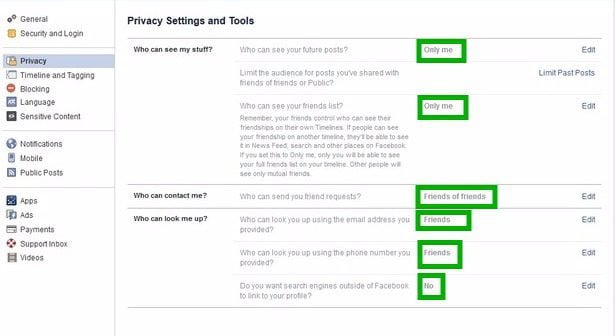Deception in a relationship can be a painful discovery. It can erode trust, damage intimacy, and leave you feeling confused and unsure. Whether it’s a full-blown lie or a carefully omitted truth, any form of dishonesty can create a wedge between partners.
This blog aims to shed light on deception in relationships. We’ll explore different forms of deception, the reasons behind it, and how it can negatively impact your bond. We’ll also provide tips on recognizing signs of deception and navigating a situation where you suspect your partner might be keeping something from you.
Let’s dive in!
Understanding Deception
Deception, in its myriad forms, can disrupt the delicate balance of trust within relationships. It extends beyond straightforward lies, encompassing subtle maneuvers such as omissions and white lies. In this exploration, we’ll delve into the complexities of deception, examining its nuances and implications for interpersonal connections.
What is Deception?
At its core, deception involves the intentional distortion of truth or the concealment of information. While lying is a primary component, deception extends beyond explicit falsehoods to encompass behaviors aimed at misleading or manipulating others. In relationships, deception can take various forms, from outright lies to more nuanced tactics like selective disclosure and feigned emotions.
Lies vs. Omissions
Drawing a clear line between lying and omitting information can prove challenging. While lies involve the fabrication of falsehoods, omissions entail the deliberate withholding of relevant details. Both can undermine trust and create barriers to genuine communication. We’ll explore scenarios where the distinction blurs and discuss the impact of each on relationship dynamics.
Navigating the Gray Area of White Lies
The concept of “white lies” introduces a layer of ambiguity into the discussion of deception. These seemingly innocuous falsehoods are often employed to spare others’ feelings or maintain social harmony. However, even well-intentioned white lies can erode trust over time and obscure authentic connections. We’ll examine the ethical considerations surrounding white lies and explore alternatives for fostering honesty and transparency in relationships.
Why Do People Deceive Their Partners?
Deception in relationships often arises from complex motivations rooted in fear, self-preservation, and a desire to maintain harmony. By delving into the underlying reasons behind dishonesty, we can gain insight into the dynamics of interpersonal communication and foster empathy and understanding within our relationships.
Fear of Conflict:
Conflict avoidance is a common catalyst for deception in relationships. Individuals may withhold the truth or fabricate falsehoods to sidestep confrontation or the discomfort of disagreement. This fear of conflict can stem from a desire to preserve harmony or a belief that honesty will inevitably lead to discord. However, avoiding difficult conversations can ultimately undermine trust and hinder genuine connection.
Protecting Their Partner’s Feelings:
The impulse to shield a partner from hurt or disappointment can prompt deceptive behavior. Whether it’s downplaying personal concerns or concealing uncomfortable truths, individuals may justify their dishonesty as an act of compassion. However, while the intention may be rooted in kindness, the long-term consequences of deception can erode trust and breed resentment, ultimately damaging the relationship.
Protecting Themselves:
Deception can also serve as a means of self-preservation, allowing individuals to avoid vulnerability, shame, or judgment. By crafting a façade of competence or reliability, they seek to shield themselves from perceived threats to their self-esteem or social standing. However, this defensive posture inhibits authentic connection and prevents the development of genuine intimacy, perpetuating a cycle of mistrust and emotional distance.
Maintaining a Positive Image:
The pressure to meet societal or personal expectations can drive individuals to engage in deceptive practices to maintain a favorable image in their partner’s eyes. Whether it’s embellishing achievements, concealing flaws, or presenting a curated version of themselves, the fear of falling short of perceived ideals can lead to dishonesty. However, the pursuit of perfection through deception only serves to perpetuate insecurity and undermine the foundation of trust upon which healthy relationships are built.
The Impact of Deception
The impact of deception on a relationship is far-reaching and profound, undermining trust, fostering insecurity, stifling communication, and perpetuating a cycle of dishonesty. Recognizing the corrosive effects of deception is the first step toward rebuilding trust and fostering genuine connection within the relationship. By prioritizing honesty, transparency, and open communication, partners can navigate the challenges of deception and forge a stronger, more resilient bond built on trust and mutual respect. Deception can have a significant negative impact on a relationship. Here’s how:
Erosion of Trust
Honesty serves as the cornerstone of trust within a relationship. When deception enters the equation, it undermines this foundation, gradually eroding the sense of security and confidence that partners rely on. Each lie chips away at the trust established between individuals, creating cracks that weaken the bond over time. Without trust, intimacy falters, and the relationship becomes vulnerable to further strains and fractures.
Increased Insecurity
Discovering or suspecting deception can trigger profound feelings of insecurity within a relationship. Doubts about the authenticity of your partner’s words and actions can sow seeds of doubt in your own worth and value within the partnership. This heightened sense of insecurity can manifest in various ways, from questioning your partner’s motives to second-guessing the sincerity of their expressions of love and commitment. Over time, this pervasive insecurity can poison the well of intimacy, fostering a climate of suspicion and emotional distance.
Communication Breakdown
Open and honest communication is the lifeblood of any healthy relationship. Deception, however, acts as a barrier to genuine connection, inhibiting the free flow of information and emotions between partners. When one party resorts to dishonesty, it creates a rift in the fabric of communication, leading to misunderstandings, resentment, and frustration. Rather than addressing issues openly and collaboratively, individuals may retreat into silence or passive-aggressive behavior, further exacerbating the breakdown in communication.
A Cycle of Dishonesty
Deception has a propensity to breed more deception, perpetuating a destructive cycle that corrodes the integrity of the relationship. When one partner engages in dishonest behavior, it often begets a response in kind or triggers further acts of deceit as a means of self-preservation or retaliation. This cycle of dishonesty becomes self-reinforcing, making it increasingly challenging to break free from its grip. As trust continues to erode, the relationship becomes mired in a pattern of mistrust and deception, with each lie further widening the chasm between partners.
Recognizing the Signs
In any relationship, trust forms the bedrock upon which intimacy and connection are built. When that trust is compromised by deception, it can leave partners feeling unsettled and uncertain about the authenticity of their bond. While it’s impossible to read minds, there are often subtle cues that may indicate when a partner is keeping secrets. This section will delve into some of these red flags, empowering individuals to recognize potential signs of deception within their relationship. While mind-reading isn’t an option, there are often signs that can indicate your partner might be deceiving you. This section will explore some of these red flags:
Changes in Communication
Effective communication is essential for maintaining a healthy relationship. When a partner begins to exhibit changes in their communication patterns, it may signal underlying issues. Pay attention to signs such as increased withdrawal, reluctance to discuss certain topics, or providing vague or evasive answers. These shifts in communication can be indicative of a desire to conceal information or avoid uncomfortable conversations.
Shifty Body Language
While not always definitive, alterations in body language can offer valuable insights into a partner’s emotional state and intentions. Be attuned to signs such as fidgeting, avoiding eye contact, or nervous laughter, as these behaviors may suggest discomfort or unease. In particular, sudden changes in body language during discussions about sensitive topics could be a red flag indicating potential deception.
Inconsistencies in Stories
Consistency is key when it comes to storytelling. Pay close attention to your partner’s narratives and be wary of any inconsistencies or discrepancies that arise. Do their explanations ever seem to shift or lack detail? Are there noticeable contradictions between different accounts of events? These inconsistencies may be subtle clues that your partner is not being entirely truthful or forthcoming with information.
Unexplained Changes in Behavior
Changes in behavior can serve as a significant indicator of potential deception within a relationship. Take note of any sudden shifts, such as an increase in working late hours, secretive behavior regarding their phone or social media usage, or a newfound reluctance to share details about their daily activities. While these changes may have innocent explanations, they can also be indicative of efforts to conceal certain behaviors or interactions from their partner.
What to Do If You Suspect Deception
Suspecting deception within a relationship can evoke a range of emotions, from confusion to betrayal. However, addressing these concerns with open and honest communication is crucial for fostering trust and clarity within the partnership. This section outlines practical steps for approaching the situation constructively and navigating the complexities of potential deception. If you suspect your partner is being dishonest, the best course of action is open and honest communication. Here’s how to approach the situation:
Gather Your Thoughts
Before initiating a conversation with your partner, take some time to reflect on your feelings and observations. Identify specific instances or behaviors that have triggered your suspicions and consider how they have impacted your trust and confidence in the relationship. By clarifying your thoughts and emotions, you can approach the conversation with a clear understanding of your concerns.
Choose the Right Time and Place
Timing and environment play a significant role in facilitating productive communication. Choose a time and place where you and your partner can engage in a calm and uninterrupted conversation. Avoid addressing sensitive topics in moments of tension or distraction, and instead, opt for a setting conducive to open dialogue and mutual respect.
Focus on “I” Statements
When addressing your suspicions with your partner, focus on expressing your own feelings and experiences using “I” statements. Instead of resorting to accusatory language or placing blame, communicate how their behavior is impacting you personally. For example, instead of saying, “You’re always lying to me,” try framing your statement as, “I feel hurt and confused when I sense that information is being withheld from me.”
Be Prepared to Listen
Effective communication is a two-way street, requiring both speaking and listening with empathy and openness. Give your partner the opportunity to share their perspective and provide explanations for their behavior. Approach the conversation with a willingness to listen without judgment, even if their responses challenge your assumptions or expectations. By actively engaging in dialogue and seeking mutual understanding, you can lay the groundwork for resolving concerns and rebuilding trust within the relationship.
Sums Up
Trust and open communication are key to navigating situations where deception is suspected. If open communication doesn’t resolve the issue, consider seeking professional help from a couples therapist. Deception in a relationship is a complex and multifaceted issue that can erode trust and intimacy if left unchecked. By familiarizing ourselves with the signs of deception, understanding its manifestations, and addressing it with honesty and compassion, we can cultivate healthier and more authentic connections with our partners. Remember, trust is not only a gift we give to others but also a commitment we make to ourselves.









